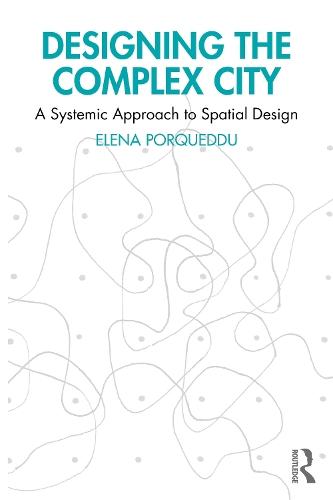Overview
How can designers address the emergent self-organizing nature of complex urban environments? Designing the Complex City highlights how both an excess and a lack of design control might contrast the lively complexity of cities, their adaptive and evolutionary capacity. By using key concepts from systems thinking, complexity sciences, life sciences, cognitive sciences, and social sciences, the book frames a systemic spatial design approach aimed at enhancing the potential of different spatial design disciplines to navigate place-specific emergent transformations without overdetermining their formal outcome. A range of heterogeneous case studies, developing at different scales, show how embracing a design approach that is embodied, open-ended, contextually responsive, incremental and adaptive does not question the relevance of designers’ specific skills in shaping the physical structure of cities; it may rather increase their potential to effectively intervene in complex adaptive cycles of urban decay and self-regeneration. Designing the Complex City provides insights for students, researchers, and academics in architecture, interior design, urban and landscape design, planning theory, and urban studies. It is essential reading for all designers who seek to proactively and meaningfully intervene in spontaneous socio-spatial dynamics.
Full Product Details
Author: Elena Porqueddu
Publisher: Taylor & Francis Ltd
Imprint: Routledge
Weight: 0.500kg
ISBN: 9781032801407
ISBN 10: 1032801409
Pages: 186
Publication Date: 07 August 2025
Audience:
College/higher education
,
Professional and scholarly
,
Tertiary & Higher Education
,
Professional & Vocational
Format: Hardback
Publisher's Status: Active
Availability: Not yet available

This item is yet to be released. You can pre-order this item and we will dispatch it to you upon its release.
Reviews
""Complexity calls for alternative spatial designs, a message Elena Porqueddu conveys with compelling clarity. Highlighting flow, change and adaptability across various levels, she leaves no room for doubt about their implications for designers. Furthermore, she proposes an approach to design that gracefully addresses the challenges of spontaneous urban transformation"" Gert de Roo, Professor in Planning, University of Groningen, Netherlands “The field of design seems to often undervalue the disruptive implications of complexity. This book tries to fill this gap in an original way by developing a fresh approach that is both theoretically and practically challenging in this regard.” Stefano Moroni, Professor in Planning, Polytechnic University of Milan, Italy
Author Information
Elena Porqueddu is an architect and researcher based in Milan. After gaining a Ph.D. in Architecture, Urban Design and Conservation of Housing and Landscape from the Polytechnic of Milan, she continues to dedicate her activities as a scholar and lecturer to exploring the interplay between spatial design disciplines and the emergence/evolution of spontaneous social-spatial configurations, and to studying the implications of systems thinking for spatial design.



